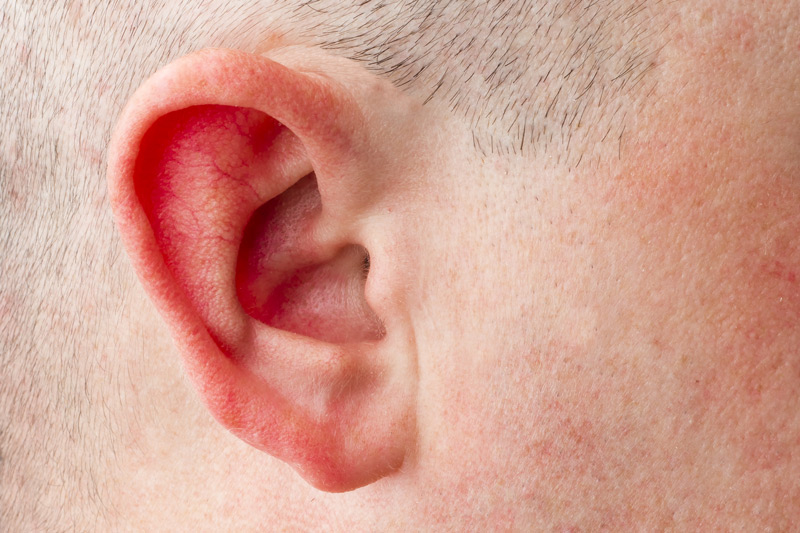Relapsing polychondritis is a rare disorder causing inflammation and deterioration of cartilage (connective tissue). Symptoms often include pain, swelling and redness in the ears. The condition also can impact the nose, airway and other body parts. Most people can manage episodes with medications, but rare complications can be life-threatening.
Advertisement
Cleveland Clinic is a non-profit academic medical center. Advertising on our site helps support our mission. We do not endorse non-Cleveland Clinic products or services. Policy

Image content: This image is available to view online.
View image online (https://my.clevelandclinic.org/-/scassets/images/org/health/articles/24846-relapsing-polychondritis)
Relapsing polychondritis is a rare disorder that causes inflammation and deterioration of cartilage. Cartilage is a connective tissue throughout your body.
Advertisement
Cleveland Clinic is a non-profit academic medical center. Advertising on our site helps support our mission. We do not endorse non-Cleveland Clinic products or services. Policy
Relapsing polychondritis tends to affect the cartilage in your:
Other names for relapsing polychondritis include:
Relapsing polychondritis can affect anyone, but it usually starts in people ages 40 to 60.
This condition is rare. Researchers estimate that it affects 1 in 285,000 people.
Scientists don’t know what causes relapsing polychondritis. Some consider it an autoimmune disease (when your immune system attacks healthy tissue). But they don’t understand why it happens.
Relapsing polychondritis tends to occur in episodes or flares. An episode may last a few days or weeks, and they occur repeatedly for years.
The first symptoms are usually pain, tenderness, swelling and redness in one or both ears. The symptoms affect cartilage inside and outside your ears but not your ear lobes. Your ears may become floppy.
Other relapsing polychondritis symptoms include:
Advertisement
Rarely, someone with relapsing polychondritis might also have:
There’s no test to diagnose or confirm relapsing polychondritis. A healthcare provider can diagnose the condition if you have at least three associated symptoms over time. A biopsy of your ear cartilage or a blood test might help confirm a diagnosis.
There’s no cure for this condition. Relapsing polychondritis treatment aims to ease symptoms and reduce the chances of complications. Treatment often begins with:
In more severe cases, healthcare providers may prescribe:
People with very severe cases may require surgery, such as:
Relapsing polychondritis life expectancy is generally good. Almost 95% of people with the condition are alive eight years after diagnosis.
But it can cause life-threatening complications, particularly breathing problems. And it can cause permanent loss of hearing or vision.
Relapsing polychondritis is a chronic condition that doesn’t go away. But with treatment, you may be able to make episodes less intense and less frequent.
Scientists don’t understand what causes relapsing polychondritis, so there are no strategies to prevent it.
If you’ve been diagnosed with relapsing polychondritis, consider asking your healthcare provider the following questions:
If you have relapsing polychondritis, schedule regular appointments with your healthcare providers. If you have any issues with breathing, vision or hearing, seek medical attention as soon as possible. Don’t wait for your next appointment.
Relapsing polychondritis is a rare disorder that causes inflammation and deterioration of cartilage. It usually affects your ears and nose, but it can damage your airway and other body parts. If you have symptoms of this condition, talk to a healthcare provider. Most cases are manageable, but life-threatening complications can occur.
Advertisement
Learn more about the Health Library and our editorial process.
Cleveland Clinic's health articles are based on evidence-backed information and review by medical professionals to ensure accuracy, reliability, and up-to-date clinical standards.
Cleveland Clinic's health articles are based on evidence-backed information and review by medical professionals to ensure accuracy, reliability, and up-to-date clinical standards.